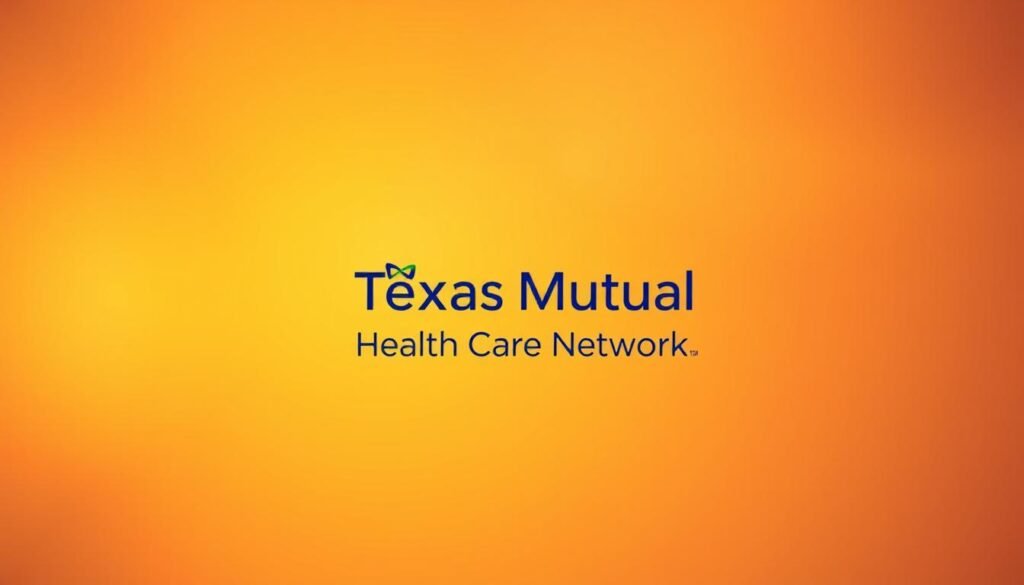It is important to choose the right partner for texas workers compensation insurance . It saves a business time, money, and stress after an injury. This review covers what employers need to know about Texas Mutual Insurance Company.
It talks about coverage, rates, claims handling, and digital tools. Texas Mutual is Texas’ largest workers’ comp carrier. It serves over 80,000 businesses.
It offers competitive premiums, a healthcare network discount, and a dividend program. This review gives insight into coverage options, rate drivers, and customer experience. It also covers phone numbers, the provider portal, Houston operations, and career opportunities.
The analysis comes from 15 years of industry experience. It aims to help Texas employers understand how Texas Mutual workers comp fits into a risk management plan. It also tells when to consider other options. Read on for tips to compare policies, control costs, and keep employees safe.
Table of Contents
ToggleKey Notes;
- Texas Mutual is the state’s largest dedicated workers’ compensation carrier and focuses on texas workers compensation insurance for employers.
- The company highlights competitive texas mutual insurance rates, a health care network discount, and a dividend program for policyholders.
- Online services and a provider portal streamline claims reporting, bill pay, and account management.
- Regional operations, including Houston, and community funding initiatives reflect local commitment and outreach.
- Evaluate e-mod, class codes, and safety programs when comparing texas mutual insurance coverage to alternatives.
Overview of Texas Mutual Insurance Company
Texas Mutual started in 1991 as the Texas Workers’ Compensation Insurance Fund. It changed its name to focus on helping hardworking Texans. The team has over 30 years of experience in workers’ comp.
The company is dedicated to protecting workplaces. It helps small and mid-sized employers. Its programs aim to lower injury costs and keep workers productive.
Texas Mutual is the top choice for workers’ comp in Texas. It covers over 80,000 businesses. It’s known for helping employers who can’t find coverage elsewhere.
Recent ratings show Texas Mutual is financially strong. AM Best gave it an A+ rating with a stable outlook. This means the company has solid finances and can pay claims well.
TrustedChoice ratings also highlight Texas Mutual’s strengths. They note its focus on workers’ comp, dividend history, and safety resources. But they also mention its limited product range and geographic reach.
| Topic | Key Points |
|---|---|
| Founding and Mission | Founded 1991; mission to support Texas employers and injured workers; 30+ years of workers’ comp focus |
| Market Role | Largest state-focused workers’ comp writer with 80,000+ policyholders; often a carrier of last resort |
| Product Focus | Specialized workers’ compensation programs, safety training, return-to-work services and loss control |
| Financial Strength | AM Best A+ (Superior) upgrade; stable outlook; strong claims-paying ability |
| Ratings Context | Texas mutual insurance ratings praised for stability; TrustedChoice offers composite scoring and comparative notes |
| Who Benefits | Texas employers seeking specialized texas mutual workers comp, safety resources, and stable long-term coverage |
Texas Mutual Insurance Company
For employers and agents, knowing the right contact details is key. Texas Mutual has a full public website. It has tools for reporting injuries, finding doctors, making payments, and more.
Local teams help across Texas, with events in Houston and more. They also offer seminars for employers.
Contact information and corporate details
Corporate filings show the official address and NAIC number. Agents and employers should check these details. This is important when filling out forms or reporting to regulators.
The website is the main place for policy documents and safety tips. It helps with daily risk management.
Provider phone number and customer service channels
Claims can be reported 24/7 by phone, online, or through the app. The website has the provider phone number for quick use. Customer support is available by phone, email, and social media.
There are also self-service tools for policy lookups. This makes managing policies easier.
📞 Texas Mutual Insurance Company – Key Phone Numbers
- General Inquiries (Employers, Agents, Workers):
(800) 859-5995 | Email: information@texasmutual.com - Report an Injury:
Call (800) 859-5995 or submit online - Report Fraud:
(800) 488-4488 - Safety Services Support Center:
(844) WORKSAFE (967-5723) | Email: safety@texasmutual.com - WorkWell, TX Health Care Network:
(844) 867-2338 | Email: wwtxadmin@texasmutual.com - Health Care Providers Support:
(888) 532-5246 | Email: information@texasmutual.com - Electronic Billing Partner (Jopari Solutions – Payer ID: 22945):
(866) 269-0554
Company address and NAIC number
The company address and NAIC number are in corporate filings and on the website. Make sure these are up to date before submitting forms or talking to state agencies. This helps avoid delays.
Provider portal and online account management
Policyholders can manage their policies online. They can check claims, pay bills, and report payroll. Injured employees can see their claim status.
The provider portal has a directory for doctors and pharmacies. Policy management tools make routine tasks easier. Reviews help improve services, like claims access and online account management.
| Service | Access Channel | Key Benefit |
|---|---|---|
| 24/7 Claims Reporting | Phone, Online, Mobile App | Immediate incident intake and faster medical coordination |
| Policy Management | Texas Mutual Online Account | Billing, payroll reporting, and policy documents in one place |
| Provider Directory | Provider Portal | Searchable list of in-network doctors and pharmacies |
| Customer Support | Phone, Email, Social Media | Multiple channels for questions and account help |
| Corporate Verification | Regulatory Filings / Website | Official address and NAIC number for filings and audits |
Types of Policies Offered: Workers’ Compensation and Business Insurance
Texas Mutual focuses on workers’ compensation for Texas employers. This focus leads to consistent processes, safety programs, and claims handling. It shapes what employers expect when looking at workers compensation and Texas Mutual options.
Primary focus on workplace coverage
Texas Mutual mainly offers workers’ compensation. It provides medical benefits, wage replacement, and help getting back to work. Employers looking for expertise in workplace injury often choose Texas Mutual.
Business insurance options and limitations
Their product list is simple. Texas Mutual doesn’t sell general liability, property, or business packages directly. Companies need to find another carrier or an independent agent for full coverage.
When Texas Mutual fits your needs
Employers wanting specialized service and cost control should look at Texas Mutual. Small and mid-size firms benefit from their focus on safety and cost management.
Who should look elsewhere
Businesses needing many types of insurance should look elsewhere. Independent agents can help compare Texas Mutual with other options for the best fit.
Actionable next steps
- List workplace risks and desired safety services.
- Request a quote to compare workers compensation rates and dividend eligibility.
- Consult an independent agent for additional business insurance if needed.
Coverage Options and Benefits

Texas Mutual offers workers comp coverage for Texas employers. They manage claims, provide medical access, and support vocational recovery. This helps injured employees get back to work.
Medical care includes doctor visits, hospital stays, and more. Adjusters and case managers work with doctors for timely care. Using network providers speeds up treatment and recovery.
Wage replacement starts when a worker can’t do their job. Payments cover lost earnings based on Texas laws. Employers and adjusters check return times to match medical updates.
Rehabilitation and vocational support are key benefits. Teams assess abilities and suggest transitional duties. They also connect workers with vocational specialists to help them get back to work.
Joining the texas mutual health care network saves money. Employers get a 12% discount on premiums. Using network providers helps control costs and improves claim outcomes.
Network rules require seeing specific providers for treatment. Employers get help through the portal and adjuster contacts. This reduces delays and keeps recovery on track.
Return-to-work programs get support from Texas Mutual. They offer templates, safety consultations, and training. This partnership helps workers get back to their jobs faster and lowers costs.
Case managers and adjusters find modified tasks for workers. Employers that use these tasks see better recovery and fewer absences. This approach helps manage workplace injuries effectively.
Rates, Premiums and Cost Control Features
Knowing how texas mutual insurance rates work helps employers plan and manage costs. This part explains what affects premium costs and how to lower them for those who qualify.
How premiums are calculated
Premiums start with how many workers you have and their job types. Insurers use payroll to figure out how much you owe. Then, they adjust this based on your company’s safety record.
Discounts and safety group programs
Texas Mutual has ways to lower your premiums. Being part of approved safety groups can cut costs by a lot. Also, joining health care networks can give you an extra 12% off.
Texas Mutual dividend program
The texas mutual dividend program gives back to policyholders when they meet certain goals. How much you get depends on your losses, how much you pay, and following the rules. Most businesses get some money back, but it’s based on how well you do.
Historical rate trends and impact
Workers’ comp rates in Texas have been going down for a while. This makes it easier for businesses to get coverage. Employers who focus on safety and accurate payroll can benefit the most from these trends.
Practical steps to control cost
- Check your payroll and job codes every year to avoid paying too much.
- Work on preventing claims and helping workers get back to work to improve your safety score.
- Join safety groups and health networks to get discounts and save money.
- Keep track of things that help you get dividends, like how often you have claims.
Claims Experience and Customer Service

Texas Mutual offers quick, helpful support for injured workers and employers. They focus on fast claims handling. This means getting care quickly and getting back to work fast.
24/7 claims reporting
Employers can report claims anytime with a phone call, online, or through an app. Quick reporting means fast medical care. Choose the easiest way to report to cut down on paperwork.
Claims process overview
Reporting starts with details entered online or by phone. An adjuster checks the facts and opens the claim. In emergencies, workers get care right away.
For non-emergencies, care goes through network providers. Adjusters pick providers with good outcomes. They manage the case, arrange appointments, and approve pay when it’s due.
Customer service tools
Texas Mutual’s online account is for policy management and more. Employers can update payroll and check claims here. It also has forms, safety tips, and event sign-ups.
Online bill pay and claim tracking make things easier. Employers like having one place for everything. It helps with return-to-work plans.
- 24/7 claims reporting via phone, portal, app
- Adjuster-led medical coordination and wage-replacement support
- Policy management, online bill pay, payroll reporting in one account
Pros and Cons Based on Reviews and Industry Analysis
Here, we dive into texas mutual insurance reviews and industry analysis. We look at the good and bad points from third-party scores, regulator notes, and policyholder feedback. This helps employers understand the pros and cons when choosing an insurance provider.
Texas Mutual specializes in Texas workers’ compensation. This focus gives them deep knowledge and tools that national carriers often lack. This specialization is a big plus in discussions about texas mutual insurance pros and cons.
Financial strength is key for paying claims. AM Best’s A+ (Superior) rating shows Texas Mutual is stable. This rating is good for employers worried about long-term stability.
Dividend history adds value. Texas Mutual has returned about $4.8 billion to policyholders. Around 80% of eligible customers get dividends, making this a major plus in reviews.
Safety resources help control costs. Texas Mutual offers free training and consultant access. These tools help lower workplace risk and influence premiums. Many policyholders appreciate these practical tools and the focus on prevention.
Key limitations
Product range is narrow. Texas Mutual mainly offers workers’ compensation and doesn’t sell broad commercial lines. Employers needing a one-stop solution might need to work with other carriers or brokers.
Service area limits flexibility for multistate firms. Policies only apply in Texas, which can be complex for businesses with operations outside the state. Advisors often compare this to national carriers when discussing ratings.
Public customer feedback is limited. Online reviews and scores are sparse and mixed. This makes it hard for prospective buyers to get a full picture. TrustedChoice and similar sites highlight this lack of feedback.
Customer service hours are unclear on the website. Some policyholders expect clear contact-hour listings for claims and support. This is a common criticism in texas mutual insurance reviews.
Third-party score context
TrustedChoice gives a composite near 3.3 out of 5 and a 3.5-star rating. It praises strong financial metrics and dividend history but notes limited product depth and thin public feedback. Independent agents often suggest comparing with national carriers before making a decision.
For employers focused on Texas workers’ compensation, Texas Mutual’s ratings and pros and cons discussions are likely positive. But for those needing multi-line or multistate solutions, there are gaps to consider.
Comparison with Competitors and Market Alternatives

Choosing a carrier means looking at specialty, price, and access to care. Texas Mutual specializes in workers’ comp for Texas only. This focus helps employers get tailored loss control and local claim handling.
How Texas Mutual stacks up against national carriers
Texas Mutual focuses on Texas rules and return-to-work programs. It has an AM Best A+ rating, showing it’s financially strong like many national carriers.
Coverage differences, pricing, and provider network access
Coverage follows Texas laws for most carriers. Pricing changes based on payroll, class code, and e-mod. Texas Mutual rates can drop if employers join safety groups or use a health care network for a 12% discount.
Provider network access is key for cost control and medical results. Texas Mutual’s network limits provider choices to Texas. National carriers offer more options for businesses outside Texas.
When to choose a local carrier or an independent agent instead
Go with Texas Mutual for state expertise, local adjusters, and safety dividends. Choose a national carrier for packaged commercial lines, multi-state policies, or billing consolidation.
Use an independent agent to compare quotes and check e-mods. They help test scenarios, compare prices and networks, and estimate how Texas Mutual rates compare.
| Decision Factor | When Texas Mutual fits | When a National Carrier fits |
|---|---|---|
| State specialization | Strong local expertise and Texas-focused safety programs | Limited state focus; better for multi-state operations |
| Pricing levers | Discounts via safety groups and a 12% network-related advantage | Bundling discounts across lines may lower overall costs |
| Provider network access | Concentrated Texas network for cost control and outcomes | Broader national networks for multi-state claim handling |
| Policy breadth | Focused workers’ comp solutions and return-to-work services | Package policies, multi-line coverage, and national account teams |
| Agent role | Independent agents validate e-mod and dividend eligibility | Independent agents compare national pricing and bundled options |
Tips for Choosing the Best Workers’ Compensation Policy
Choosing the right workers’ comp policy is more than just looking at the price. It’s about how the insurer motivates safety, supports claims, and handles them. Taking small steps now can save costs and reduce downtime later.
Evaluate e-mod, safety programs, and dividend eligibility
Look at your experience modifier and ask an agent to show how different losses affect it. Ask for specific premium examples that include class codes and payroll assumptions. Also, ask about how your e-mod might change.
Check out safety programs and rules for safety groups. Make sure you know about discounts for safety groups and health care networks. These can lower rates by up to 24%. Also, find out how dividends work, including eligibility criteria and past payouts.
Questions to ask agents and what to verify about provider networks
Ask for a policy illustration that shows premium drivers and discounts. Make sure it lists expected out-of-pocket costs. Also, ask about claims handling, adjuster assignments, and return-to-work coordination.
Check the health care network directory and pharmacy access for your area. This ensures employees keep their care choices and continuity. Also, make sure policy management tools let you update payroll and track claims online.
How to use Texas Mutual’s safety resources and events
Go to employer seminars in Houston and virtual training like Workers’ Comp Wednesday. Learn risk control tactics and network with peers. Use free training videos, safety materials, and expert consultations to reduce injuries.
Use Texas Mutual’s online portal for forms, FAQs, and payroll reporting. These tools help with policy management and make audits and renewals easier. Read texas mutual insurance reviews to compare feedback before making a decision.
| Decision Area | What to Request | Why It Matters |
|---|---|---|
| Experience Modifier | Scenario modeling of claims impact on e-mod | Shows premium sensitivity to losses and benefit of loss control |
| Safety Programs | Eligibility, discount levels, training offerings | Direct premium reduction and lower injury frequency |
| Dividend Eligibility | Program rules, historical payout rates, calculation method | Potential return of premium tied to performance |
| Provider Network | Directory, geographic coverage, pharmacy access | Ensures timely care and cost control for injured workers |
| Claims Service | Adjuster caseloads, reporting timelines, return-to-work plan | Faster resolution and better outcomes for employees |
| Ongoing Tools | Online account, payroll reporting, policy management features | Simplifies administration and supports compliance |
| Career and Support | Information on texas mutual insurance careers and local reps | Access to knowledgeable staff and specialized guidance |
| Reputation | Texas mutual insurance reviews and third-party ratings | Gives context for service quality and financial strength |
Conclusion
Texas Mutual Insurance Company offers special workers’ compensation for Texas employers. It has an AM Best A+ rating and a dividend program that has given back nearly $4.8 billion. It also has a 12% health care network discount.
This helps control costs and supports getting workers back to work. It has tools like 24/7 claims reporting by phone, online, and mobile app. You can also manage your account and pay bills online.
But, there are not many public reviews about Texas Mutual Insurance. So, employers should compare these services with others to see if they are worth it. If you need more than workers’ compensation, you might need to look at other companies.
Next steps include figuring out your premiums and asking agents for quotes. You can also join safety programs and training events. If you’re looking for a job, check out the Texas Mutual website for openings and office locations.
In summary, Texas Mutual is a top choice for workers comp insurance in Texas. It focuses on keeping costs down and being financially stable. Use comparisons and talk to independent agents to find the best fit for your business.








